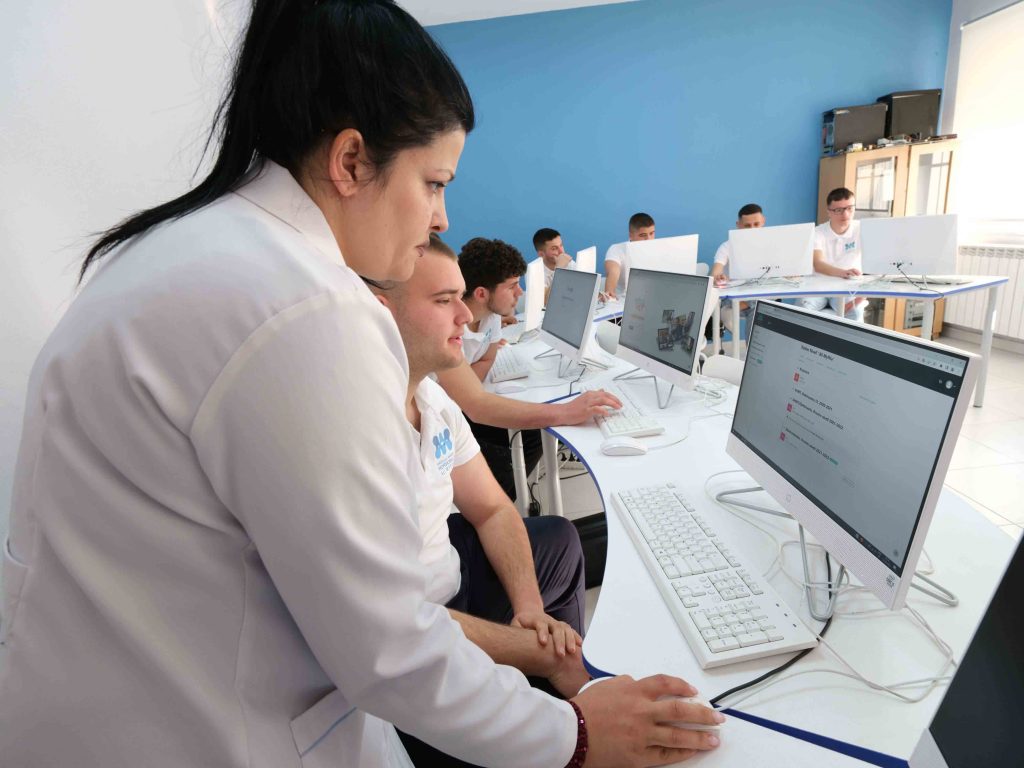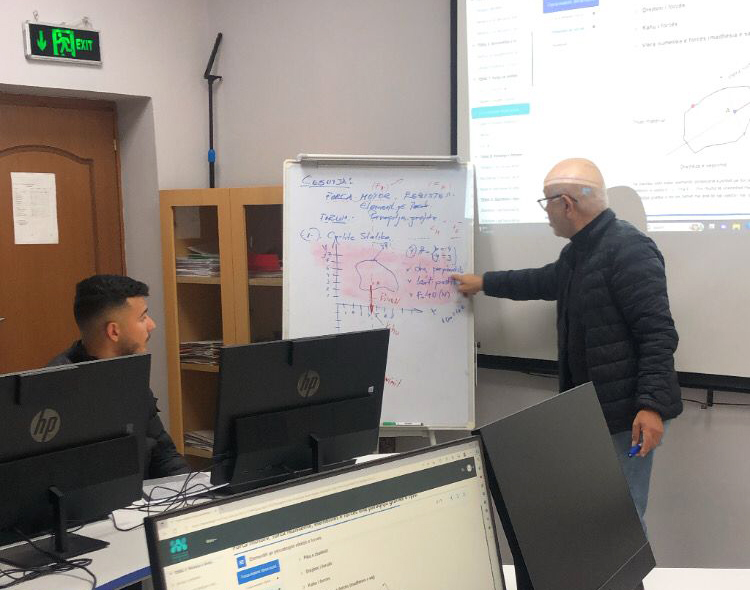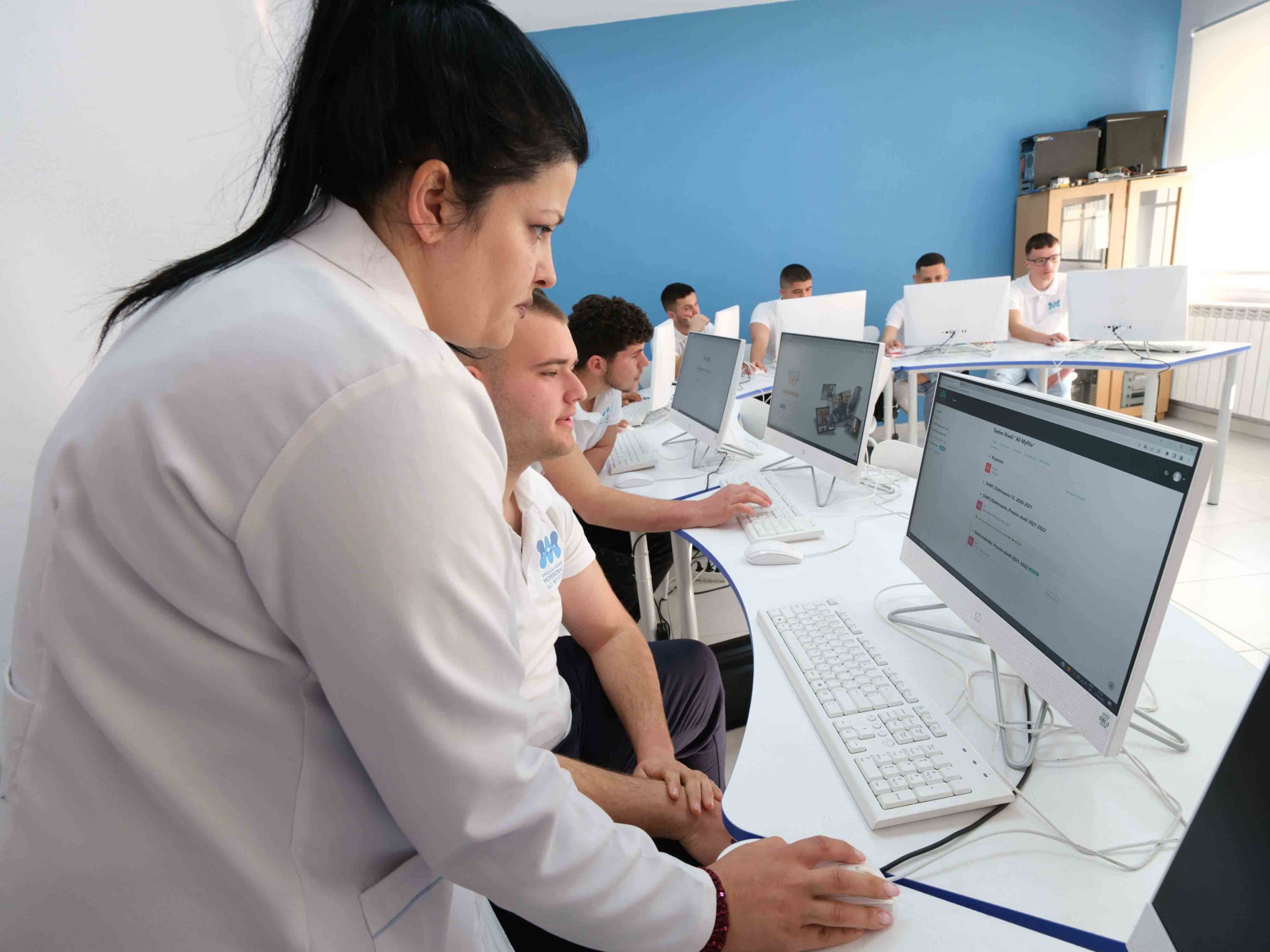Blended Learning for Increasing Student Engagement
During April and May, a remarkable development took place in vocational education as 27 teachers of both general and professional subjects conducted open classes using blended learning techniques. Through the utilization of “MësoVET” virtual platform, teachers employed a variety of engaging techniques such as presentations, quizzes, videos, games, and forums, fostering an immersive learning environment.
Teachers’ professionalism was notable, with their ability to integrate technology into their diverse teaching methodologies. Equally impressive was the level of enthusiasm displayed by the students, who demonstrated a deep interest in the subject matter and actively participated in the activities.

The development of these open classes was made possible through the guidance and support of S4J experts who provided mentoring, technical assistance, and pedagogical expertise, collaborating closely with the school representatives responsible for digitalization.
When asked for their thoughts, the students expressed a clear preference for this modern approach to education. One student in the “Transportation Vehicle Services” direction said: “To be honest, I truly enjoy the forums, videos, and quizzes. Learning feels much easier in this format.”

Although some of the teachers were still in the early stages of implementing blended learning, their enthusiasm and dedication were evident in their efforts to provide students with a more effective and appealing learning environment.
With blended learning the future of vocational education looks promising, ensuring that students receive a holistic learning experience that prepares them for the ever-evolving demands of the labor market.
Developing Contemporary Digital Learning Materials
During the month of May, a digital learning materials presentation marathon week was held, where each of the 32 teachers involved in creating these materials showcased their work to their colleagues.
Throughout this year, they developed teaching materials for 55 subjects in 5 different fields, including Food Technology, Economics-Business, Mechanics, Transport Vehicles Service, and ICT.

The creation of these digital materials adhered to specific criteria, incorporating didactic principles that emphasize engagement, interaction, and creativity. They were aligned with the curriculum and learning objectives, ensuring their relevance and effectiveness.

